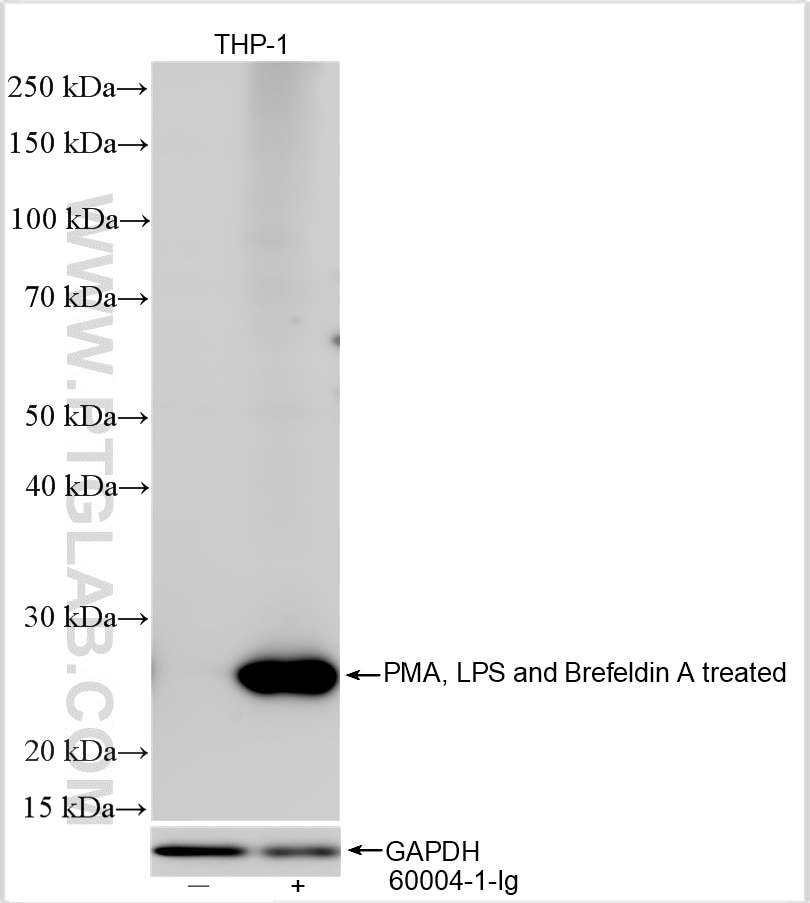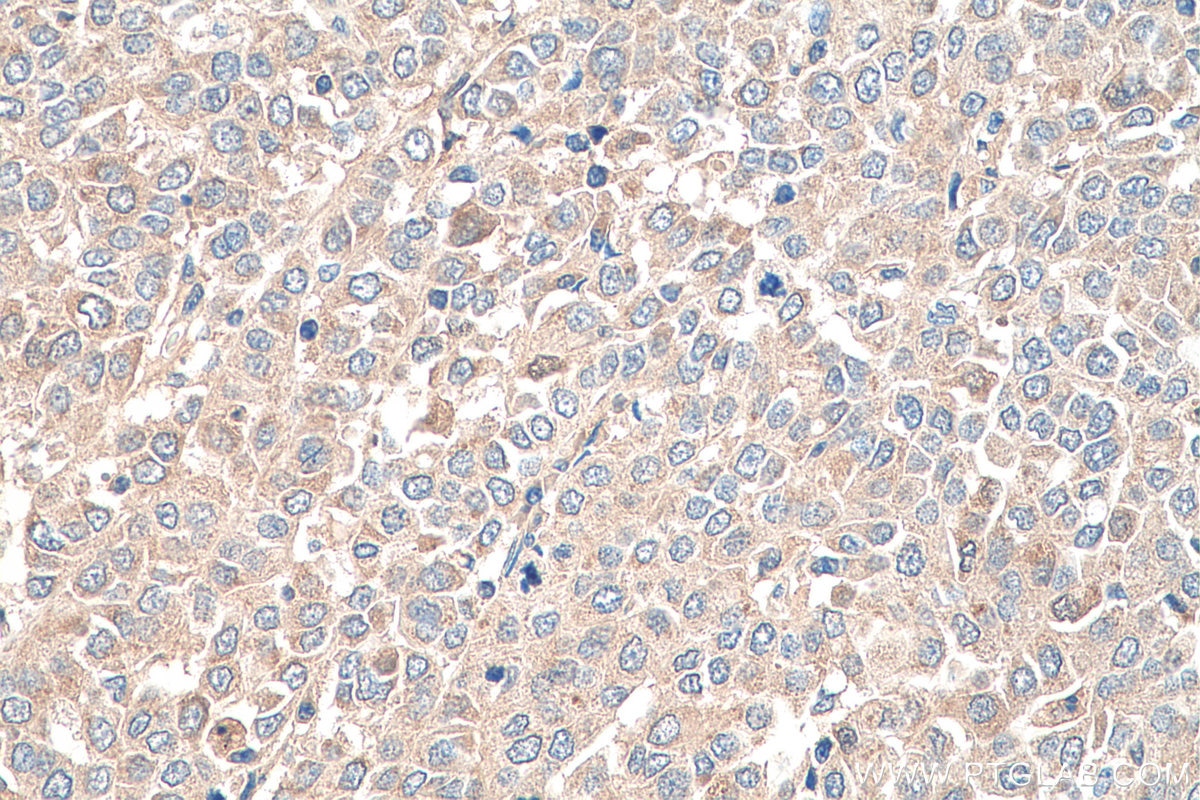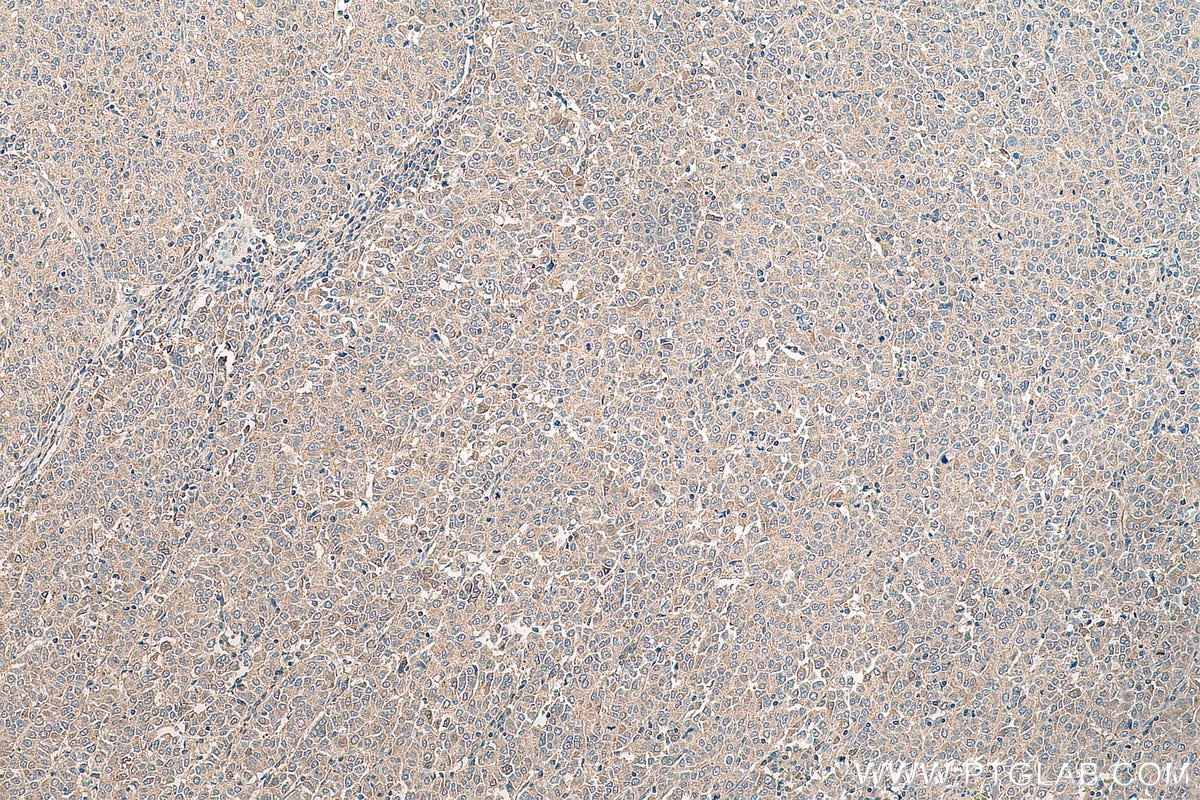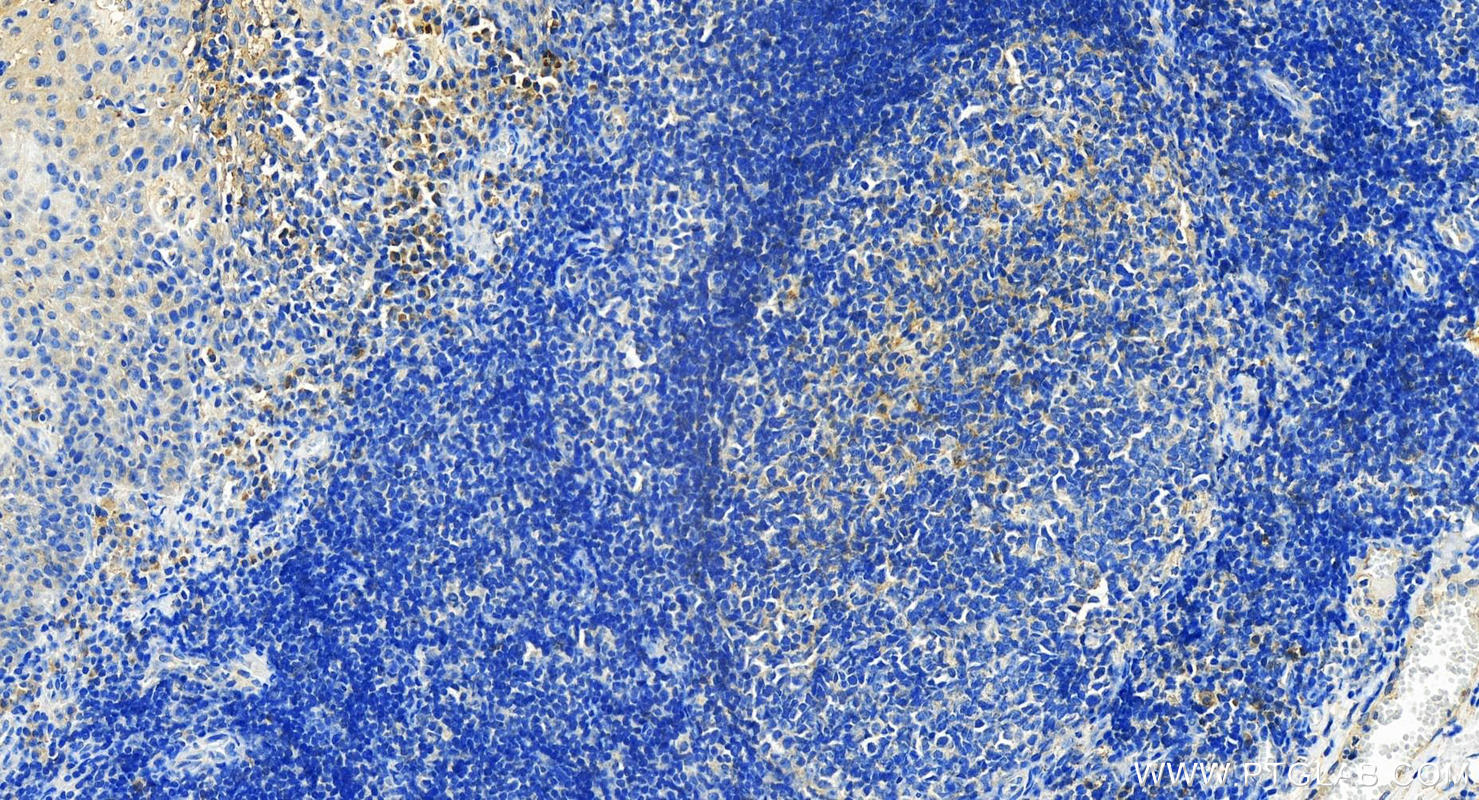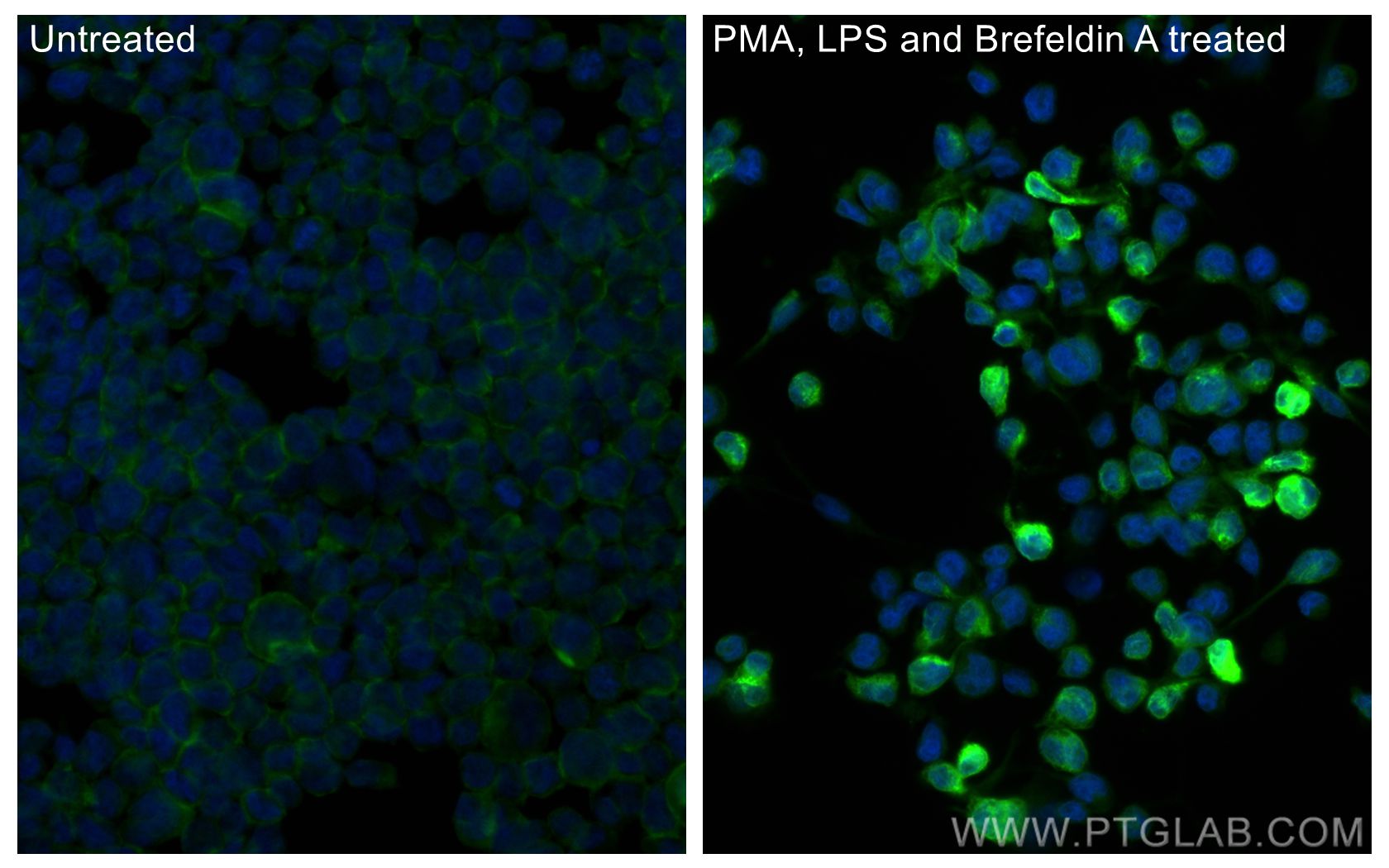Validation Data Gallery
Tested Applications
| Positive WB detected in | THP-1 cells |
| Positive IHC detected in | human ovary tumor tissue, human tonsillitis tissue Note: suggested antigen retrieval with TE buffer pH 9.0; (*) Alternatively, antigen retrieval may be performed with citrate buffer pH 6.0 |
| Positive IF/ICC detected in | PMA, LPS and Brefeldin A treated THP-1 cells |
Recommended dilution
| Application | Dilution |
|---|---|
| Western Blot (WB) | WB : 1:500-1:2000 |
| Immunohistochemistry (IHC) | IHC : 1:50-1:500 |
| Immunofluorescence (IF)/ICC | IF/ICC : 1:50-1:500 |
| It is recommended that this reagent should be titrated in each testing system to obtain optimal results. | |
| Sample-dependent, Check data in validation data gallery. | |
Published Applications
| WB | See 26 publications below |
| IHC | See 19 publications below |
| IF | See 1 publications below |
Product Information
26405-1-AP targets TNF-alpha in WB, IHC, IF/ICC, ELISA applications and shows reactivity with human samples.
| Tested Reactivity | human |
| Cited Reactivity | human, mouse, rat, rabbit |
| Host / Isotype | Rabbit / IgG |
| Class | Polyclonal |
| Type | Antibody |
| Immunogen | TNF-alpha fusion protein Ag24020 相同性解析による交差性が予測される生物種 |
| Full Name | tumor necrosis factor (TNF superfamily, member 2) |
| Calculated molecular weight | 233 aa, 26 kDa |
| Observed molecular weight | 26 kDa |
| GenBank accession number | BC028148 |
| Gene Symbol | TNF-alpha |
| Gene ID (NCBI) | 7124 |
| ENSEMBL Gene ID | ENSG00000232810 |
| RRID | AB_2918102 |
| Conjugate | Unconjugated |
| Form | Liquid |
| Purification Method | Antigen affinity purification |
| UNIPROT ID | P01375 |
| Storage Buffer | PBS with 0.02% sodium azide and 50% glycerol{{ptg:BufferTemp}}7.3 |
| Storage Conditions | Store at -20°C. Stable for one year after shipment. Aliquoting is unnecessary for -20oC storage. |
Background Information
TNF, as also known as TNF-alpha, or cachectin, is a multifunctional proinflammatory cytokine that belongs to the tumor necrosis factor (TNF) superfamily. It is expressed as a 26 kDa membrane bound protein and is then cleaved by TNF-alpha converting enzyme (TACE) to release the soluble 17 kDa monomer, which forms homotrimers in circulation. It is produced chiefly by activated macrophages, although it can be produced by many other cell types such as CD4+ lymphocytes, NK cells, neutrophils, mast cells, eosinophils, and neurons. It can bind to, and thus functions through its receptors TNFRSF1A/TNFR1 and TNFRSF1B/TNFBR. This cytokine is involved in the regulation of a wide spectrum of biological processes including cell proliferation, differentiation, apoptosis, lipid metabolism, and coagulation. This cytokine has been implicated in a variety of diseases, including autoimmune diseases, ins resistance, and cancer.
Protocols
| Product Specific Protocols | |
|---|---|
| WB protocol for TNF-alpha antibody 26405-1-AP | Download protocol |
| IHC protocol for TNF-alpha antibody 26405-1-AP | Download protocol |
| IF protocol for TNF-alpha antibody 26405-1-AP | Download protocol |
| Standard Protocols | |
|---|---|
| Click here to view our Standard Protocols |
Publications
| Species | Application | Title |
|---|---|---|
J Control Release Efficient gene delivery by multifunctional star poly (β-amino ester)s into difficult-to-transfect macrophages for M1 polarization | ||
J Nanobiotechnology Oxygen-delivery nanoparticles enhanced immunotherapy efficacy monitored by granzyme B PET imaging in malignant tumors | ||
Redox Biol Ethyl carbamate triggers ferroptosis in liver through inhibiting GSH synthesis and suppressing Nrf2 activation. | ||
Cell Prolif Dental pulp stem cells-based therapy for the oviduct injury via immunomodulation and angiogenesis in vivo. | ||
Int Immunopharmacol Emu oil alleviates atopic dermatitis-like responses by inhibiting Cdc42 signaling of keratinocyte | ||
Neurochem Res BMP7 Attenuates Neuroinflammation after Spinal Cord Injury by Suppressing the Microglia Activation and Inducing Microglial Polarization Via the STAT3 Pathway |
